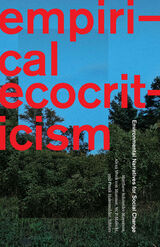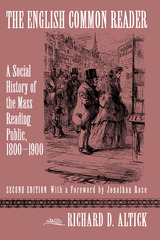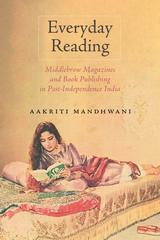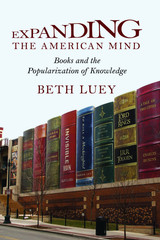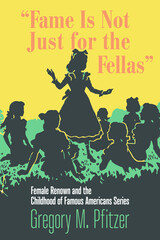“More than ever, this book is needed. A must read by people in power, as well as advocates, and anyone who cares about people and cities. Charles has experience and knowledge, explains clearly the problems, and provides solutions. Clearly, we can create equitable cities, but action like those he suggests must be implemented. Now.”
— Gil Penalosa, Founder and Chair, 8 80 Cities and Cities for Everyone
“How do we first recognize, then un-arrest the mobility of Black and other marginalized people as they move through communities, spaces and places? This timely, creative, and thoroughly engaging book offers workable policy and planning frameworks of mobility justice and racial justice to professionals, advocates, and others responsible for shaping our collective futures.”
— Julian Agyeman, Professor of Urban and Environmental Policy and Planning, Tufts University
“Charles T. Brown delivers a powerful and unflinching exploration of the impact of mobility on communities of color in the United States. This thought-provoking examination challenges the conventional belief that increased law enforcement automatically leads to enhanced safety, urging readers to confront the unexamined assumptions that underlie our perceptions of security.
Brown emphasizes that transportation is more than movement—it's life. He bravely addresses inequities woven into our legal and societal fabric while presenting concrete solutions that aim to dismantle these obstacles, fostering a future where everyone can experience the true gift of mobility.”
— Selika Josiah Talbott, Esq., Transportation advocate and educator
“Arrested Mobility reminds one of a bar from Goodie Mob’s ‘Cell Therapy’, ‘But every now and then, I wonder if the gate was put up to keep crime out — or keep our ass in.’ Brown’s book deftly gives language to a condition, a cancer he calls it, that Black folks in the United States have lived with since the 1600s — the control of Black mobility. Brown destroys all arguments that the violence, brutality and fear Black people experience while walking, running, biking, driving or riding public transit are isolated incidents, and reveals them as extensions of a gripping legacy and purposeful policy. Arrested Mobility is a must read for anyone looking to more deeply understand racial housing patterns, wealth curtailment, or the pervasiveness of segregation. In a world where the powerful are literally whitewashing history by banning any text that directly addresses the experience of others, Brown should prepare for his book to be banned, because the knowledge it contains, if heeded, could do serious damage to the cancer of arrested mobility and help change the country.”
— Topher Sanders, Reporter, ProPublica
“Charles Brown has shaped the national discourse over equity in transportation, the use of open space, and physical activity for cohorts of public health practitioners across the nation. Here, he brings together his insights on these issues to highlight the numerous ways that structural racism is woven into the fabric of the American landscape. Arrested mobility has profound impacts on the experiences of people of color and in particular, Black Americans. Brown helps us understand that only by dismantling the internal structures of thought that stigmatize and dehumanize Black lives, the structures of political power that perpetuate social and physical immobility, and the decades of decision making that have manifested a physical landscape that arrests Black mobility can true social, economic, and health justice be achieved.”
— Gabriel E Kaplan, Assistant Director of Health Services, Sonoma County
“More than ever, this book is needed. A must read by people in power, as well as advocates, and anyone who cares about people and cities. Charles has experience and knowledge, explains clearly the problems, and provides solutions. Clearly, we can create equitable cities, but action like those he suggests must be implemented. Now.”
— Gil Penalosa, Founder and Chair, 8 80 Cities and Cities for Everyone
“How do we first recognize, then un-arrest the mobility of Black and other marginalized people as they move through communities, spaces and places? This timely, creative, and thoroughly engaging book offers workable policy and planning frameworks of mobility justice and racial justice to professionals, advocates, and others responsible for shaping our collective futures.”
— Julian Agyeman, Professor of Urban and Environmental Policy and Planning, Tufts University
“Charles T. Brown delivers a powerful and unflinching exploration of the impact of mobility on communities of color in the United States. This thought-provoking examination challenges the conventional belief that increased law enforcement automatically leads to enhanced safety, urging readers to confront the unexamined assumptions that underlie our perceptions of security.
Brown emphasizes that transportation is more than movement—it's life. He bravely addresses inequities woven into our legal and societal fabric while presenting concrete solutions that aim to dismantle these obstacles, fostering a future where everyone can experience the true gift of mobility.”
— Selika Josiah Talbott, Esq., Transportation advocate and educator
“Arrested Mobility reminds one of a bar from Goodie Mob’s ‘Cell Therapy’, ‘But every now and then, I wonder if the gate was put up to keep crime out — or keep our ass in.’ Brown’s book deftly gives language to a condition, a cancer he calls it, that Black folks in the United States have lived with since the 1600s — the control of Black mobility. Brown destroys all arguments that the violence, brutality and fear Black people experience while walking, running, biking, driving or riding public transit are isolated incidents, and reveals them as extensions of a gripping legacy and purposeful policy. Arrested Mobility is a must read for anyone looking to more deeply understand racial housing patterns, wealth curtailment, or the pervasiveness of segregation. In a world where the powerful are literally whitewashing history by banning any text that directly addresses the experience of others, Brown should prepare for his book to be banned, because the knowledge it contains, if heeded, could do serious damage to the cancer of arrested mobility and help change the country.”
— Topher Sanders, Reporter, ProPublica
“Charles Brown has shaped the national discourse over equity in transportation, the use of open space, and physical activity for cohorts of public health practitioners across the nation. Here, he brings together his insights on these issues to highlight the numerous ways that structural racism is woven into the fabric of the American landscape. Arrested mobility has profound impacts on the experiences of people of color and in particular, Black Americans. Brown helps us understand that only by dismantling the internal structures of thought that stigmatize and dehumanize Black lives, the structures of political power that perpetuate social and physical immobility, and the decades of decision making that have manifested a physical landscape that arrests Black mobility can true social, economic, and health justice be achieved.”
— Gabriel E Kaplan, Assistant Director of Health Services, Sonoma County
“More than ever, this book is needed. A must read by people in power, as well as advocates, and anyone who cares about people and cities. Charles has experience and knowledge, explains clearly the problems, and provides solutions. Clearly, we can create equitable cities, but action like those he suggests must be implemented. Now.”
— Gil Penalosa, Founder and Chair, 8 80 Cities and Cities for Everyone
“Charles T. Brown delivers a powerful and unflinching exploration of the impact of mobility on communities of color in the United States. This thought-provoking examination challenges the conventional belief that increased law enforcement automatically leads to enhanced safety, urging readers to confront the unexamined assumptions that underlie our perceptions of security.
Brown emphasizes that transportation is more than movement—it's life. He bravely addresses inequities woven into our legal and societal fabric while presenting concrete solutions that aim to dismantle these obstacles, fostering a future where everyone can experience the true gift of mobility.”
— Selika Josiah Talbott, Esq., Transportation advocate and educator
“Arrested Mobility reminds one of a bar from Goodie Mob’s ‘Cell Therapy’, ‘But every now and then, I wonder if the gate was put up to keep crime out — or keep our ass in.’ Brown’s book deftly gives language to a condition, a cancer he calls it, that Black folks in the United States have lived with since the 1600s — the control of Black mobility. Brown destroys all arguments that the violence, brutality and fear Black people experience while walking, running, biking, driving or riding public transit are isolated incidents, and reveals them as extensions of a gripping legacy and purposeful policy. Arrested Mobility is a must read for anyone looking to more deeply understand racial housing patterns, wealth curtailment, or the pervasiveness of segregation. In a world where the powerful are literally whitewashing history by banning any text that directly addresses the experience of others, Brown should prepare for his book to be banned, because the knowledge it contains, if heeded, could do serious damage to the cancer of arrested mobility and help change the country.”
— Topher Sanders, Reporter, ProPublica



